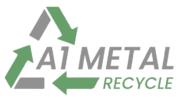Scrap copper is one of the most valuable and sought-after metals in the recycling world. Whether you’re a hobbyist looking to earn a little extra money or a professional scrapper aiming to maximise profit, knowing where to find scrap copper can make all the difference. This comprehensive guide will walk you through the best places to look, tips for safe collecting, and how to stay on the right side of the law.
Why Scrap Copper Is Valuable
Copper is a non-ferrous metal known for its excellent conductivity, resistance to corrosion, and malleability. It’s used in everything from electrical wiring and plumbing to motors and roofing. Because of its broad application and ease of recycling, scrap copper retains a high market value.
The scrap copper price fluctuates based on global demand, supply chains, and market trends. Keeping an eye on this price can help you know the right time to sell your haul.
Types of Scrap Copper
Before you start your search, it’s essential to understand the main categories of scrap copper:
- Bare Bright Copper: The highest grade of copper, usually stripped wire, shiny and uncoated.
- #1 Copper: Clean copper tubing or wire that’s not shiny but free from paint or other materials.
- #2 Copper: Copper with coatings, solder, or oxidation.
- Insulated Copper Wire (ICW): Found in electronics, appliances, and cables.
Knowing the differences helps you sort your finds and get the best prices at scrap yards.
Top Places to Find Scrap Copper
Now, let’s get into the real hunt. Copper is everywhere — once you know where to look.
1. Old Electronics and Appliances
Electronics are a goldmine for insulated copper wire. Look for:
- Desktop computers
- Printers
- Scanners
- TVs
- DVD players
- Power cords
Inside these devices, you’ll find small motors, wire harnesses, and circuit boards containing copper.
Large appliances like refrigerators, washing machines, dryers, and air conditioners often have larger motors and wiring. While heavy to move, they offer a good copper return once dismantled.
2. Construction and Renovation Sites
Construction and demolition sites are prime locations for copper-rich materials like:
- Plumbing pipes
- Electrical wiring
- Copper flashing and roofing materials
Tip: Always ask for permission before collecting scrap from a job site. Many contractors are happy to get rid of what they consider trash, but unauthorised collecting can be illegal.
3. Plumbing and HVAC Businesses
Plumbers and HVAC technicians regularly replace old copper pipes and AC units. Build a relationship with local businesses and offer to haul away their scrap. It saves them time and disposal fees — and puts copper in your hands.
Old air conditioners are especially valuable. The condenser coils and motors contain copper, but be careful: removing refrigerants from AC units requires a certified technician.
4. Automotive Shops and Junkyards
Auto repair shops and junkyards often have:
- Wiring harnesses
- Alternators and starters
- Radiators (older ones often contain copper)
Be sure to remove any non-copper components to ensure clean classification when selling to a yard.
5. Your Own Home
Look around your house. You might be surprised how much copper is hiding in plain sight:
- Old extension cords
- Broken electronics
- Christmas lights
- Lamps
- Power tools
If you’re renovating, save the old pipes and wires — it could turn into cash instead of landfill waste.
6. Dumpster Diving and Curbside Collection
If you’re up for some physical effort, check out:
- Bulk trash days
- Apartment move-out weeks
- Dumpsters behind electronics stores
Be respectful and cautious. Never trespass or take items from private property without permission. Wear gloves, check local laws, and be aware of safety risks when diving.
Safety and Legal Considerations
Collecting scrap copper can be rewarding, but it comes with responsibilities:
- Legal Compliance: Many cities require scrappers to have a license. Never take copper from a site or structure without explicit permission.
- Environmental Rules: Don’t burn insulation off wires to extract copper — it’s illegal and harmful to health and the environment.
- Personal Safety: Use gloves, eye protection, and tools like wire cutters, wrenches, and screwdrivers. Be cautious when dealing with heavy machinery or sharp materials.
Tools to Help You Scrapping
To maximise your efficiency, consider using:
- Wire strippers
- Multimeter (to test for live wires)
- Magnet (to separate ferrous from non-ferrous metals)
- Bolt cutters
- A truck or trailer for transporting materials
Final Thoughts: Turning Copper into Cash
Finding scrap copper is part strategy, part hustle. Whether you’re digging into electronics, making deals with local tradespeople, or scoping out renovation sites, there’s a world of opportunity out there.
The key is persistence, preparation, and safety. With the right mindset and a little elbow grease, your scrap pile can quickly become a steady source of extra income by selling it to scrap metal dealer.



